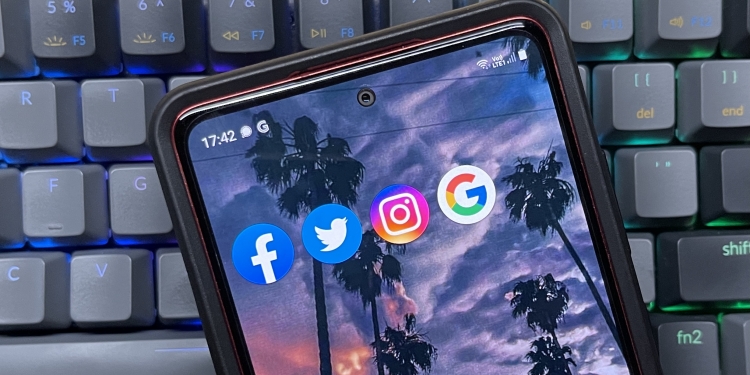Big tech firms are collecting lots of data on their customers, some more so than others. The folks at Visual Capitalists have shared an infographic that illustrates just how much personal data is collected by some of the biggest tech companies in the industry.
The infographic comes from the website Security Baron which examined the privacy policies of Google, Facebook, Apple, Twitter, Amazon and Microsoft to find out just how much these tech firms know about you. The site gives an extremely detailed summary of the practices of the different companies and assigns a grade to them.
The results were surprising, to say the least. But before we go further here is a visual representation of the types of data that big tech companies collect on their users.

Having seen all that data, let’s examine three of the most notable companies on the list: Google, Facebook and Apple.
First up Google. Among all the companies on the list, the Mountain View based company collects the most data on its users. This should come as no surprise as their entire business model is built on gathering as much data about you. The tech giant keeps a ton of data about you as their reach encompasses a wide range of products and services from Gmail, Google Maps and of course, search.
So, what kind of data does Google keep track of? Well, they know what you have been searching for, the videos you watch on YouTube, as well as your location and places you have been to in a day.
Google collects all personal data in an effort to serve targeted ads that are relevant to the user. That being said, this isn’t done based on an individual’s race, religion, health or sexual orientation. Google also uses your data to measure the performance of ads. They also share this data with advertisers, so they can create ads that are more effective.
Next up, let’s look at Facebook. The social media giant collects lots of data on its users, this includes deeply personal information like their relationship status, religious views and political views. This is on top of other data like the people you interact with to the groups that you have joined.
The fact remains that Facebook makes most of its money through its advertisers and as such this has led to them to aggressively mine data on its users. They are said to be able to easily see the demographics of their customers and other would-be customers. This means that while they can’t see a list of who clicked on an ad, they can know the person’s gender, age and location.
In stark contrast to the two above, Apple is regarded as the best large tech company when it comes to privacy. In fact, Apple is dead serious about data privacy and has been a proponent of raising the awareness on the importance of protecting personal data online.
Security Baron found that the Cupertino based company doesn’t collect a lot of information its users at least compared to other companies in the list. It is said that Apple only keeps track of data like a user’s language preference, zip code, search queries and how they use their devices and apps.
The only data that Apple seems to collect is data that is used to improve their products, services, content and to keep accounts secure. It is also noted that Apple stores by far the least amount of a user’s activity data, logging only their search terms and the time, frequency, and duration of activities.
With that said, it is safe to assume that if you are using a device that is connected to the internet, you will be generating data. The fact is that data is being monetised by the company that made the device or by services that sell your data to third parties.
However, as privacy concerns are becoming more public, companies should give users more opportunities to opt-out of data collection and sharing. It is worth mentioning that Apple has pushed several privacy-focused features on iOS 14 including an App Store privacy labelling feature that gives users a way to see what data an app collects about them before they choose to install it.
The Cupertino company is also planning to push its App Tracking Transparency (ATT) feature in the next version of iOS 14 that will make all tracking across apps and websites opt-in only. Users will then be able to choose between “Allow Tracking” or “Ask App Not To Track.”
If you are interested in having a more detailed look at the privacy policies employed by the big tech firms, check out Security Baron’s story here.








